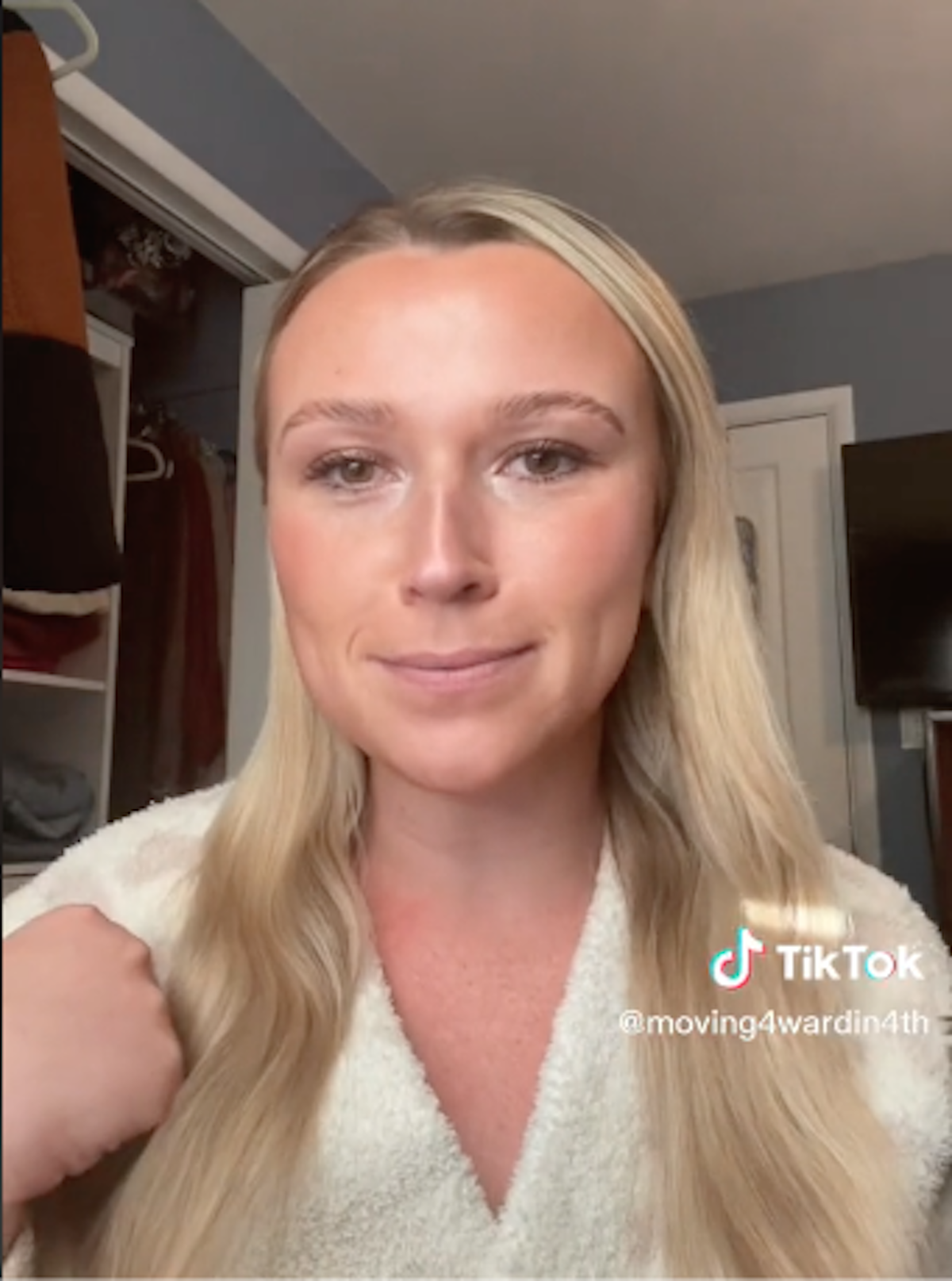Being Aware of Colon Cancer Symptoms
- Carly Barrett, a 4th-grade teacher living in Louisville, Kentucky, with no family history of colon cancer, was diagnosed with the disease at age 24.
- Now, 28, Barrett is sharing her story in hopes to inspire others to get checked when noticing unusual symptoms.
- Barret sought medical help after noticing blood in her stool, ‘indescribable’ stomach pain, and a lump in her abdomen.
- She’s now in remission after undergoing chemotherapy and an immunotherapy clinical trial.
- The average age of diagnosing someone with colon cancer is 68 for men and 72 for women, as per the American Cancer Society. For rectal cancer, the age is 63 for both men and women. However, there's a worrying trend of an increasing number of younger people being diagnosed with the disease.
Barret, now 28, was diagnosed with colon cancer four years ago after noticing blood in her stool, ‘indescribable’ stomach pain, and a lump in her abdomen.
Read More
Speaking to TODAY.com, Barret recounted being in a “state of shock” at the time of her diagnosis.
"I was like, I'm 24. I'm too young. Cancer doesn't happen to people at this age. Cancer doesn't happen to people who don't have it in their family," she told the news outlet. “But it does, and colon cancer is not an (older person's) disease anymore.”
She ultimately had to undergo a six-hour exploratory surgery, which concluded with two feet of her intestine, lymph nodes, her right ovary, and a large tumor being removed, Barrett explained on her TikTok page.
“After being in the hospital for about two weeks, I luckily was able to go through an egg retrieval process, in case chemotherapy treatments threw me into early menopause.

After about eight rounds of chemo, which took about four months, a follow-up appointment revealed her cancer turned into stage four as it spread to her liver.
After trying another chemotherapy drug, her doctor recommended immunotherapy. After seeking other doctors’ opinions, she joined a clinical trial for the immunotherapy drug atezolizumab (Tecentriq) in February 2020 – which luckily shrunk her cancer and put her in remission.
Barrett, who must undergo scans every four months to check for cancer recurrence, admits she is now functioning “as normal” after getting an ostomy reversal in May 2022, just one month after her wedding.
Now she’s urging others to advocate for themselves and push for answers when something doesn’t feel right.
“Don't put off going to see a doctor. Go immediately,” she warned. “I was put off for six months. I should have not accepted their timeline but gone in to get it seen immediately so I could have taken care of myself on my own timeline.”
In one of her TikTok videos, Barret explained, “When I was first diagnosed, I went to social media to kind of go on a search for those who had positive stories and I couldn’t find.”
“So that’s why I’m deciding to tell mine. So when others are diagnosed they see my story,” she concluded.
Younger People Are Getting Colon Cancer
The average age of diagnosing someone with colon cancer is 68 for men and 72 for women, as per the American Cancer Society. For rectal cancer, the age is 63 for both men and women. However, there's a worrying trend of an increasing number of younger people being diagnosed with the disease.
"In contrast to decreasing CRC [colorectal cancer] incidence in older adults, rates have been increasing in adults aged 2039 years since the mid-1980s and in those aged 4054 years since the mid-1990s," the ACS report reads. "From 2011 through 2019, rates increased by 1.9% per year in people younger than 50 years and in those aged 5054 years.”
Additionally, the report found a rise in people being diagnosed at more advanced stages than in the mid-1990s, prior to widespread screening.
Dr. Heather Yeo Talks About Colon Cancer Treatment Options
According to Dr. Heather Yeo, a surgical oncologist who specializes in colorectal cancers at Weill Cornell Medicine, the shift could be caused by various things.
"We don't know for sure why we are seeing earlier onset and death from colon cancer," Dr. Yeo told SurvivorNet. "It is likely a combination of factors, including diet and genetics as well as access to care and some environmental factors."
In Search of An Explanation
Screening for colon cancer can save lives, however, doing so doesn’t reveal why the disease is on the rise among younger adults. Experts suspect it's a combination of factors and researchers are looking into several possible theories, including diet, gut bacteria, and inflammation.
Related: Can the Stuff in My Gut Cause Cancer? There May Be A Link to Colon Cancer
Evidence has linked an unhealthy diet high in processed meats and fat and low in fruits and vegetables with early-onset colon cancer. Being overweight or obese, or having a sedentary lifestyle may also contribute to a higher risk for early-onset of disease.
Some types of bacteria that can grow in your gut may also lead to colorectal cancer. Studies also suggest that other gut bacteria may influence how well cancer treatment works. People with an unhealthy lifestyle could have increased levels of harmful bacteria and lower levels of beneficial bacteria in their gut.
‘Does Inflammation Cause Cancer?’ Dr. Stephen Freedland Answers
Chronic inflammation, which could arise from stress, trauma, and a poor diet, or another underlying condition, may also lead to cancer. In fact, approximately 50% of younger adults with colorectal cancer already have a chronic disease that causes gut inflammation.
Other research suggests that air and water pollution, pesticides, and other chemicals in the environment could cause early-onset colon cancer risk.
Symptoms of Colon Cancer
Dr. Paul Oberstein, a medical oncologist and Assistant Director of the Pancreatic Cancer Center at NYU Langone's Perlmutter Cancer Center, previously spoke with SurvivorNet about the most common symptoms of colon cancer.
When symptoms do appear, one of the most common is a change in bowel habits. This could range from constipation or diarrhea to a change in the size or shape of bowel movements. Noticing a different stool color, specifically black or tarry stools, can reveal bleeding from a tumor located deep in the colon.
Other symptoms can be harder to decypher as cancer, such as abdominal pain and unintentional weight loss. Lastly, some tumors bleed slowly over a long period of time, resulting in anemia (a low red blood cell count) that can be shown on a blood test.
A few other possible symptoms of colon cancer are:
- Cramps
- Gas
- Weakness
- Tiredness
If you are experiencing new or unusual symptoms or those that last for more than a week or two, you should contact your doctor. Treatments for bowel cancer can include surgery, as well as chemotherapy, and radiation therapy.
If bowel cancer is discovered early on, treatment can be fully effective and stop the cancer from returning.
Contributing: SurvivorNet Staff
Learn more about SurvivorNet's rigorous medical review process.

